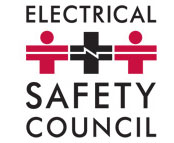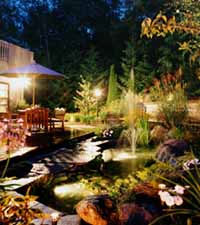 NICEIC offers the below helpful tips in order to help you to use electrical equipment safely in the garden and avoid any electrical accidents. The risk of an electric shock causing serious injury or death is greater outdoors than indoors, due to possible wet conditions and the physical contact with the ground.
NICEIC offers the below helpful tips in order to help you to use electrical equipment safely in the garden and avoid any electrical accidents. The risk of an electric shock causing serious injury or death is greater outdoors than indoors, due to possible wet conditions and the physical contact with the ground.
The Residual Current Devices
An RCD(Residual Current Device) is a safety device that switches off the electricity automatically when it detects an earth fault. Any socket-outlet that may be used for plugging in portable electrical equipment that is to be used outdoors should have RCD protection and should also be IP rated. Make sure that you are protected by an RCD with a maximum rated residual operating current of 30 milliamperes (mA). If your outdoor socket-outlet is not protected by an RCD, purchase a good quality plug-in RCD adaptor from a reputable dealer(like Sparks Electrical Wholesalers Ltd), as a temporary measure. The safest option is to get a registered installer to install permanent RCD protection to all socket-outlets that may be used for plugging in 230 V outdoor portable electrical equipment.Note: The RCDs need to be tested quarterly by the users of the electrical installation, in accordance with the notice that should be fixed near them. This normally involves pressing the test button and checking that the RCD switches off the supply immediately. Regular testing is important, to ensure correct operation of the RCD mechanism in the event of a fault.
Outdoor Flexible cables and connectors
For your electrical safety outdoors, the cables and connections should be:- of a good quality and be purchased from a reputable retailer;
- suitable for use outdoors;
- suitable for the equipment used;
- free from damage and kept clean;
- used in accordance with manufacturers' instructions;
- switched off when carrying out pond cleaning;
- located to prevent anyone tripping over the cable;
- routed to prevent them being damaged e.g. stepped on or cut;
- kept as dry as possible.
Unwinding the extension cable from the reel
Warning: When in use, the extension cables that are coiled up on a reel can overheat, causing damage to the cable, which may in extreme cases result in fire. Such extreme damage may also introduce a risk of electric shock, which could cause injury or prove to be fatal. Tip: A fully unwound cable reduces the risk of it overheating, thereby minimizing the risks of fire or electric shock.Electrical Safety Outdoors, in Wet conditions
Warning: Do not use electrical equipment when it is raining or in areas that are being watered/under the splashing of water. The risk of serious injury and even death from electric shock, are far higher in wet conditions than in the dry. Ground conditions may also be slippery in the wet, which increases the risk of an accident. Electrical equipment may also suffer damage in wet conditions. Tips: Using electrical equipment in the garden in dry conditions reduces the risk of an accident.Electrical Safety in Garden lighting
 Warning: Incorrectly selected, the installed or damaged 230V outdoor lighting installations may create a risk of electric shock, resulting in serious injury or even death. Some Electrical Safety Tips for the 230V lighting in the garden:
Warning: Incorrectly selected, the installed or damaged 230V outdoor lighting installations may create a risk of electric shock, resulting in serious injury or even death. Some Electrical Safety Tips for the 230V lighting in the garden:
- Make sure you buy good quality electrical outdoor lighting equipment from a reputable retailer, like SparksDirect;
- make sure outdoor lighting fittings (luminaires) are weatherproof;
- ensure lighting fittings used for water features are waterproof;
- have it installed by a competent electrician in accordance with manufacturer's instructions and BS 7671 - Requirements for Electrical Installations (IEE Wiring Regulations), which is the national safety standard for electrical installation work;
- check for damaged lighting fittings, cables and connections;
- remove leaves and dirt from lighting fittings.
A full set of other tips for electrical safety indoors and outdoors can be found at the Electrical Safety Council website.




